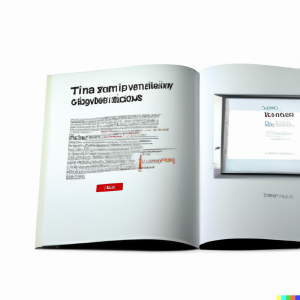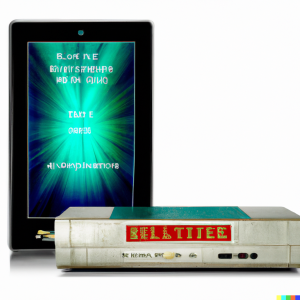Mod draws a comparison that illustrates the paradigm shift brought about by electronic publishing in stark terms: comparing the encyclopedia to Wikipedia. Growing up my father had a two volume leather-bound Encyclopedia Brittanica set. When I was younger, maybe 7 to 10, I read those occasionally like the weird little kid I was. I remember thinking about how much time it must have taken to put them together. To spell check, collate, make sure references in the index go to the right pages, etc.
Electronic publishing has not so greatly changed the world that spell checking and formatting aren’t necessary, I’ve been paid to do it, but it’s Mod discussion of the publishing timeline that struck me the most.
-
We can continuously develop a text in realtime, erasing the preciousness imbued by printing. And because of this …
-
Time itself becomes an active ingredient in authorship (in contrast to authorship happening in a seemingly timeless place, a finished product suddenly emerging).
-Craig Mod
Compared with something like Wikipedia the staid tomes that comprise an encyclopedia set seem terribly static and immutable. This might be a consequence of the pace that the world lives at now. Time spent agonizing over the print details of a book that will be out of date by the time the editing, proofing, printing, shipping, and sale are done seems wasted.
Like most people born in the late naughts, as Mod put it, I grew up largely in a world of books and paper, with screens being static objects like a television or personal computer. This was changing as I grew up with the proliferation of cell phones, GameBoys, and laptops. Now that smartphones are seemingly ubiquitous and a vast network interconnects all of these devices I think that has fundamentally changed the pace that the world functions at. As the pace has changed so too has the nature of the information we want to access.

Bookmarking this for later. Enjoy tvs star sports — IPL and international cricket. quick start and stable playback. stats and tables, key moments, extended highlights. quick start and stable playback.